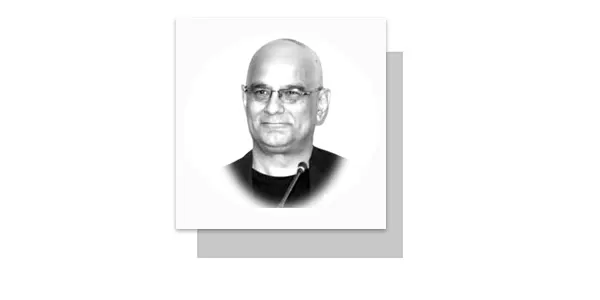By Imran Shauket
Copyright pakobserver

AS humans, we can take no credit for our religion.
We were not given a choice to be born into any particular religion. Hence, whether one is a Muslim, Hindu, Sikh, Buddhist, Christian, Baha’i, Jew or of a non-religious denomination, it is simply reliant on where we were born. Religion is thus an accident of birth. Yet, because of this accident of birth, we somehow come to believe that we are better than believers of other faiths. This mindset needs to change. I put this thought for consideration to the panel of various faiths in a recent dialogue organized by a partnership of PTDC, Green Tourism, Silk Road Center and i-Dot Cool at AIOU.
The session was titled “Gandhara Interfaith Dialogue: Many Faiths, One Nation, One Future.” As mentioned earlier, there were panelists of almost every major faith in Pakistan and senior relevant government functionaries. The discussion focused on a vision for a more inclusive Pakistan and steps needed to promote unity and interfaith harmony. The discussion focused on various elements of interfaith harmony (or disharmony), and good suggestions were put forth to create a truly pluralistic society in Pakistan. Suggestions included 1) Revising the education curricula to ensure understanding and acceptance of all faiths from childhood, 2) Highlighting the similarities in religions and the teachings – the 10 commandments hold true for all scriptural religions as well as Buddhism, Sikhism, Hinduism and Baha’i, etc, 3) Concentrating on the youth of Pakistan and teaching them the virtues of religious harmony and love – Pakistani first nationalism is more important to take Pakistan forward rather than religious bigotry, 4) Reviewing the laws of Pakistan and revising the laws that harbour religious divides – for instance, why can’t Christians be buried in AJK?
Why a minority member cannot be a lawyer in a Shariah Court – shouldn’t his/her knowledge of the laws of Shariah decide the competence rather than faith? Why does the Constitution forbid a minority from being the PM of Pakistan – it would probably and practically never happen anyways, but what kind of message do we give to the world and our minorities by codifying this prejudice? 5) Zero tolerance for hate speech and behaviour in any form or medium, and 6) Launching a mindset and behaviour change campaign based on messaging on religious freedom and acceptance from the Holy Prophet (PBUH), the Quaid, Jesus Christ, Lord Buddha, Guru Nanak, and many more. There was unity in the view that everyone is a Pakistani first and that is what we need to focus on and encourage.
It was heartening to hear from the Secretary of Religious Affairs and Interfaith Harmony that the government has prepared landmark policy documents – the Interfaith Harmony Policy and the Strategy for Religious Tolerance. These documents and similar efforts are to be lauded. However, many of us contend that the Constitution, for the most part, guarantees equal rights to all Pakistanis, hence enforcement of the Constitution and the current legal framework is what is required to ensure equality and harmony.
Going back to the discussion on “accident of birth” and applying some common-sense logic, let us consider the following. According to our faith, we believe that ALL knowledge comes from God. If we agree to this premise, then all religious knowledge (i.e. all religions) also came from God. Further, all humans were created by God, and where they were born is also His domain. If these are all true, then how can one argue that they are superior in faith to another? Religion is an accident of birth, and an accident cannot make you better or worse than another. It is only your deeds and what you become as a human that can make one a better human.
In the end, being a good human is more dependent on ones behavior towards another human, environment and the creation. That is, respecting “Haqood ul Ibad” (Rights of Humanity or Duties of Mankind) is more important than the religion and belief systems. We, as a nation, need to recognize this. Other nations are increasingly recognizing this and teach this from childhood. For example, take Japan. Japan’s primary education system (Grades 1-4), focuses heavily on character building, respect for others and social skills. The preponderance is on “Moral Education” (teaching honesty, kindness, empathy, respect for elders, team-work and responsibility), “Daily Routines and Manners” (greeting properly, clean classrooms, serving lunch to class mates and following group harmony) and “Interpersonal Skills” (cooperation, conflict resolution, listening and respecting differences).
Perhaps, we need to study and emulate the Japanese and rethink what is important for Pakistan and Pakistanis – should a sense of superiority based on an “accident of birth” be our guiding principle of life, or should we strive to be a good person and care for all Pakistanis and humanity at large.
—The writer is a former Senior Advisor to the Government and a sector development specialist. He is a member of the APP Think Tank and Pakistan’s Buddhist Heritage Promotion Ambassador for GTPL, a company under SIFC.



